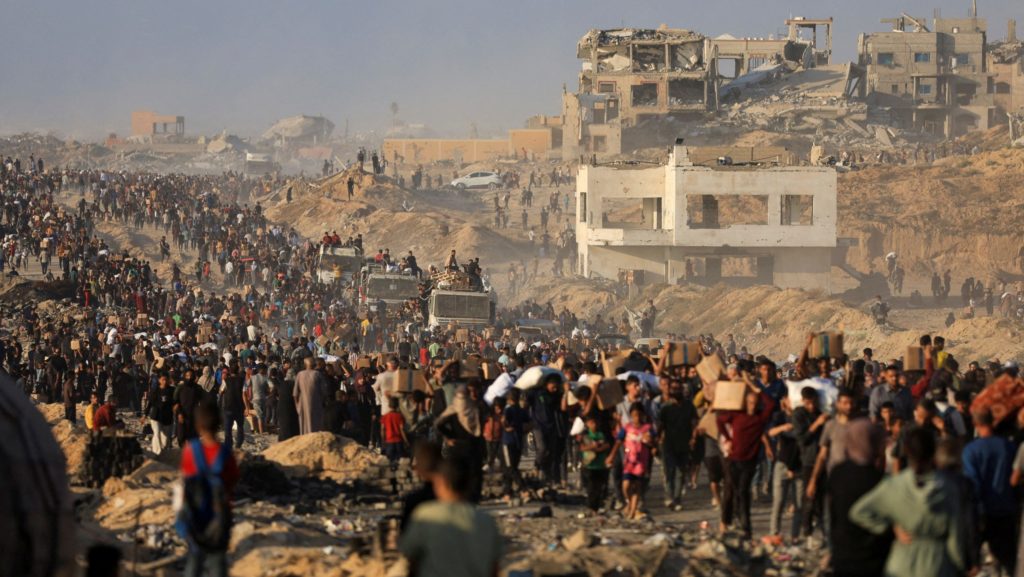Solidarity with refugees and migrants "is not optional," but rather "a living testimony of the Gospel," said Bishop Mark J. Seitz of El Paso, Texas, chairman of the U.S. Conference of Catholic Bishops' Committee on Migration.
Bishop Seitz shared his thoughts in a statement issued on World Refugee Day, which has been globally marked on June 20 since 2001.
Established by the United Nations General Assembly, the day was initially launched to commemorate the anniversary of the 1951 Refugee Convention.
While often used interchangeably, the terms "migrant" and "refugee" are separately defined under international law, with refugees specifically protected due to perilous conditions -- such war or persecution -- that make returning to their country of origin impossible. In contrast, no uniform definitions of "migrant" or "forced migration" exist at the international level, according to the United Nations, although migrants are nonetheless protected as human persons under international human rights law.
According to the U.N. Refugee Agency, by the end of 2024 more than 123 million people -- or one in every 67 persons -- worldwide had been forced to flee their homes due to persecution, conflict, violence, human rights violations and instability.
Of those, just under 43 million were refugees, with more than 73 million others displaced within their own countries, and another 8.4 million classified as asylum seekers. Additionally, the U.N. counts 4.4 million stateless persons, who have been denied a nationality and its attendant rights.
This year's observance of World Refugee Day focuses on solidarity, with the U.N. stressing the need to defend refugees' right to seek safety, as well as ending conflicts that drive them to flee their homelands while ensuring they have opportunities and resources to thrive in their host communities.
"Above all, solidarity means saying, clearly and courageously, that refugees are not alone and that we will not turn our backs," said the U.N. Refugee Agency on its website.
"In their journey, refugees embody the hope we are called to share as Christians. As we welcome them, we reflect on our own pilgrimage toward the eternal home promised to us," said Bishop Seitz in his statement. "Their resilience and faith challenge us to serve others more deeply and to build a world where every person is treated with dignity and can live in peace and freedom."
Bishop Seitz also commended the "profound witness" of those "who open their hearts and homes to those seeking safety -- welcoming the stranger, healing wounds, and restoring hope."
He echoed a June 16 statement released by Archbishop Timothy P. Broglio of the U.S. military archdiocese, the president of the U.S. Conference of Catholic Bishops, who ahead of the USCCB's weeklong retreat in California issued a reflection assuring migrants and refugees of the bishops' support as the Trump administration makes changes to U.S. immigration policies and their enforcement.
"We bishops of the United States remain resolute in our call for the consistent protection of refugees amid their disparate treatment by our government," said Bishop Seitz in his statement.
Following through on a campaign pledge, President Donald Trump has cracked down on immigration to the U.S. Among the administration's efforts are terminating protected status for migrants from several conflict-wrought nations, fully or partly banning travel to the U.S. from several nations, ordering Immigrations and Customs Enforcement to meet daily arrest quotas of 3,000, halting visa interviews for foreign students, attempting to end birthright citizenship and deporting persons without permanent legal status in the U.S. to third countries in defiance of court orders.
While the administration claims to target criminal actors in its sweeps, several high-profile arrests and deportations have impacted individuals with no demonstrated criminal record. Some 44% of the more than 51,000 in ICE detention facilities as of June 1 are estimated to have no criminal record, other than entering the U.S. without permission, according to the Transactional Records Access Clearinghouse at Syracuse University.
The USCCB and Catholic Charities USA are among some 200 non-governmental organizations named in a congressional probe for allegedly aiding immigrants its leaders call "inadmissible aliens" during former President Joe Biden's administration.
In his statement, Bishop Seitz summarized Catholic teaching on immigration, saying, "The Church recognizes the right of each country to control its borders, while also affirming the right to seek refuge when life-threatening circumstances deny people the foremost right to remain in their homeland."
Pointing to recent insights from Pope Leo XIV, Bishop Seitz said, "the temptation to turn inward, to isolate ourselves from the needs of our brothers and sisters around the world, is incompatible with a Christian vision for the common good."
Bishop Seitz paraphrased Christ's exhortation as recorded in Luke 12:48, saying, "We must remember Christ's exhortation in Luke's Gospel: to whom much is given, much is required."

